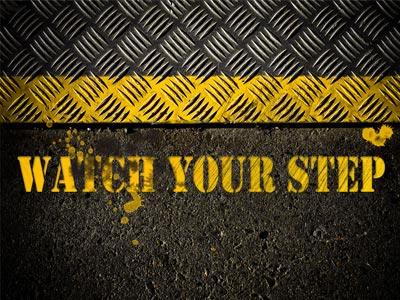-
Judas: The Man Who Decided To Do Wrong Series
Contributed by John Hamby on Nov 28, 2017 (message contributor)
Summary: Timeless principles from the life of Judas about the devastation brought about by a choice following the pathway of sin.
“Judas was counted as a follower of Christ but was lost. He was baptized and yet he was lost. He preached the Gospel and yet was lost. He was trusted by all who knew him, [save Jesus], and yet he was lost! It is a terrible thing to go to Hell from anywhere, but what [sorrow] remorse must be the portion of those who go to Hell from the church.” [John R. Rice. “Judas Iscariot” Sword of the Lord. July 27, 1973. p. 13]
It is a reminder to us today, that church attendance, church membership, even involvement in ministry is not assurance of being saved.
It is possible to be near Christ, to associate with his followers, to even be engaged in ministry and still not be truly saved and …
Third, in order to betray Jesus Judas had to literally climb over every obstacle that Jesus put in his way.
Jesus knows that the deal has already been made to betray him but he uses the Passover meal as one last chance to appeal for the soul of Judas. Repeatedly we can see how Jesus was reaching out to Judas. First, he put Judas in a place of honor at this banquet to show him that his love and forgiveness could still be extended to him. Judas reclined to at the left side of Jesus, one of the two places of honor at the table.
Not only did he give Judas a place of honor but, as Jesus goes around the table washing each of the disciple’s feet, he also washed Judas’.
As he washed Peter’s feet he said (John 10:11-12), “… and are clean, but not all of you. (11) For he knew who would betray him, therefore he said, ‘You are not all clean.” This was a loving arrow aimed at the conscience of Judas. His words perhaps caused Judas pain, but apparently not enough.
As the meal proceeded John tells us in his account (13:18) that Jesus tells his disciples, “I do not speak concerning all of you. I know whom I have chosen; but that the Scripture may be fulfilled, ‘He who eats bread with Me has lifted up his heel against Me.” The expression “has lifted his heel against me” is describing “the lifting of a horse’s hoof and the delivering a deadly kick.”
As Jesus dipped the bread in the bowl and offered it to Judas it is difficult not to see this as an offer that it is not too late yet, he does not have to go through with his betrayal. Judas took the bread but refused to turn back to the master.
So it is today, in order to turn our backs on Jesus, either to refuse his offer of forgiveness or to continue in a path of destruction, we have to climb over every obstacle he places in our path. We must climb over the Bible which is God’s recorded word. We must climb over the prayers and attempted intervention of good Christian people that God puts in our lives. We may turn our backs on Jesus, we may choose to ignore him and reject his forgiveness but will because we have chosen too.
According to Matthew’s account (26:22), after Jesus has delivered his prediction of his betrayal the disciples were grieved, “And they were exceedingly sorrowful, and each of them began to say to Him, ‘Lord, is it I?” No one had the slightest inkling that it was Judas.

 Sermon Central
Sermon Central



